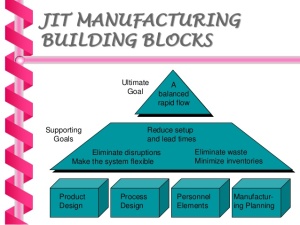A Redwood City, California resident, Rotimi Aderohunmu graduated from the Southern Methodist University and holds a PhD in production systems. Rotimi Aderohunmu is an experienced professor and previously served at Daniels College of Business at the University of Denver, among other institutions. He specializes in operations research and just in time manufacturing.
Just in time, manufacturing is a methodology and concept that aims to help with workflow. Using this methodology, companies can increase production efficiency and avoid storing inventories with unnecessary items. The process only aims to create products to match the demand and not waste resources by creating more output than necessary.
For example, if 100 products are demanded, with JIT manufacturing, companies only create 100 products. The manufacturing process works in three stages. First, a customer places an order for a company’s product. Then, the company orders the materials needed to create the merchandise. After that, the firm can assemble the product and ship it to the customer. In this way, a company does not overproduce while reducing its waste.






